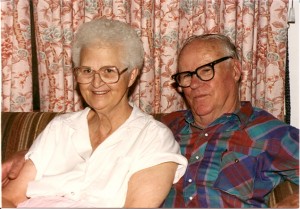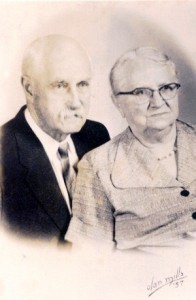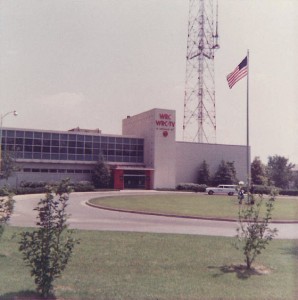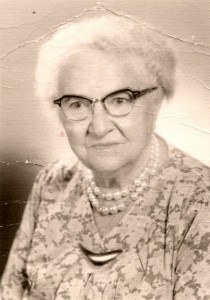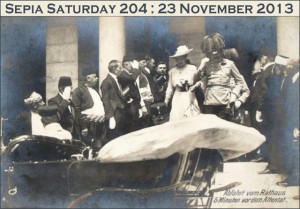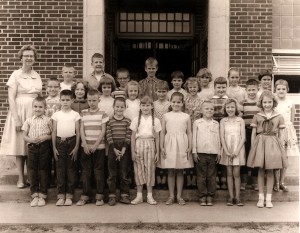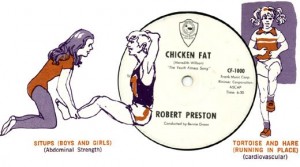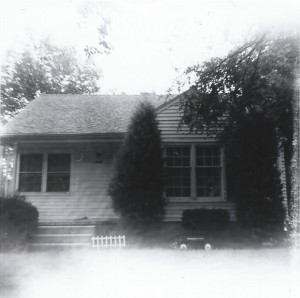I asked all of the branches of my family to send me their memories of President Kennedy and of his death. I shared my memories in a previous post. Here are the memories I received from the Webber (my paternal grandmother) side of the family – in the order in which I received them. (I have added photos and video clips.)
Bea Webber Haskins:
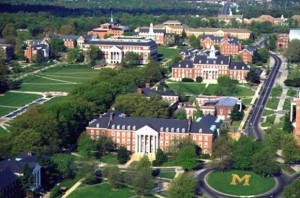 I was in a large lecture hall, one of those tiered rooms, at the University of Maryland, College Park. I don’t remember what class. All of a sudden, there was a gasp from someone way up high in the back. The professor stopped and asked very sarcastically if he was interrupting someone. A girl’s voice said, very haltingly and seriously, “Oh, my God. The President. The President. He’s been shot.” In the stunned silence that followed, the professor said something like, “How do you know?” or “What are you talking about,” something like that. She held up a transistor radio and said she was sorry, but she had been listening to it during the lecture and this news
I was in a large lecture hall, one of those tiered rooms, at the University of Maryland, College Park. I don’t remember what class. All of a sudden, there was a gasp from someone way up high in the back. The professor stopped and asked very sarcastically if he was interrupting someone. A girl’s voice said, very haltingly and seriously, “Oh, my God. The President. The President. He’s been shot.” In the stunned silence that followed, the professor said something like, “How do you know?” or “What are you talking about,” something like that. She held up a transistor radio and said she was sorry, but she had been listening to it during the lecture and this news 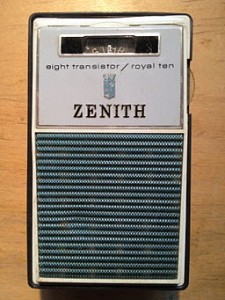 was just announced. The professor, to his credit, realized the student was not fooling around and asked her to bring her radio to the front, where he turned it up as loud as he could so we could all hear it. I don’t know if he dismissed us or if an announcement came over the P.A. system, or what, but eventually we left. Classes were cancelled and it was almost time for the Thanksgiving break. My then boyfriend, later husband, picked me up. He was not a Kennedy fan, but he was as saddened by the assassination as I was.
was just announced. The professor, to his credit, realized the student was not fooling around and asked her to bring her radio to the front, where he turned it up as loud as he could so we could all hear it. I don’t know if he dismissed us or if an announcement came over the P.A. system, or what, but eventually we left. Classes were cancelled and it was almost time for the Thanksgiving break. My then boyfriend, later husband, picked me up. He was not a Kennedy fan, but he was as saddened by the assassination as I was.
Photo credit: By ArnoldReinhold (Own work) [CC-BY-SA-3.0 (http://creativecommons.org/licenses/by-sa/3.0) or GFDL (http://www.gnu.org/copyleft/fdl.html)], via Wikimedia Commons
Tom Kessler:
The election of 1960 when JFK was elected was the first one I remember. I would have been 6 at that time, and Dad took me with him when he went to vote after work. I have dim memories of a long voting line and feeling very excited about getting to go along. I was 9 years old and in the 4th grade in November 1963 and can remember learning about President Kennedy being killed from my teacher in school that day after lunch. I don’t remember much about the discussion except for one boy saying that when he first heard about it he thought it was a bad joke.
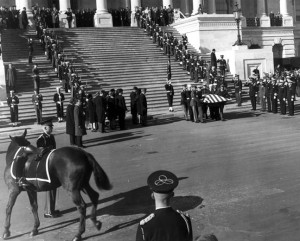 I had forgotten that the assassination was on a Friday, but that would explain why I have a sense of time sort of standing still and not going back to school until after the funeral which was on the following Monday when school was cancelled. By that time we had a TV in the house, and I watched all the funeral coverage – including of course the iconic images of the funeral procession with the riderless horse, the flag draped casket and the Kennedy family with JFK, Jr. saluting the casket.
I had forgotten that the assassination was on a Friday, but that would explain why I have a sense of time sort of standing still and not going back to school until after the funeral which was on the following Monday when school was cancelled. By that time we had a TV in the house, and I watched all the funeral coverage – including of course the iconic images of the funeral procession with the riderless horse, the flag draped casket and the Kennedy family with JFK, Jr. saluting the casket.
Wilda Morris:
I graduated from high school in 1957 and went to American University in Washington DC to study political science. I grew up under the influence of Vava (Grandfather Webber), so of course I joined the Young Democrats (Vava named his youngest daughter Woodrow Wilson Webber; that is pretty strong evidence of his political proclivities).
street by the driveway into the station and eagerly awaited the arrival of both candidates. Security wasn’t nearly as strict in those days as it is now. I could have reached out and touched Kennedy’s and Nixon’s cars when they arrived (though of course I didn’t). After the candidates went into the station, we returned to campus and watched the debate on the TV in the lounge of a dorm (In those days students did not have TV sets in their dorm rooms.).
The 1960 election was the first presidential election in which I was eligible to vote. After I received my absentee ballot from Johnson County, Iowa, I went with a Republican friend to vote and have our ballots notarized. If my memory is correct, we did that at the Registrar’s Office. We joked about cancelling each other out, though we were voting in different states.
There were evidently not many Iowans vying for tickets to the Kennedy inauguration. At any rate, my Congressman responded favorably to my request for a ticket. I had to pick it up at his office the day before the inauguration. On that day, eight inches of snow fell in D.C., more that DC knows how to handle! A lot of cars were abandoned, and traffic was a mess. It took longer than I expected to get to the Capitol Office Building, but I succeeded in getting my ticket. Standing on a street corner, waiting for a bus that would take me back to campus, I got very cold. I decided it would be better to walk than just stand there. I hiked the bus route, so I could catch the next bus, but it was a long time before one got through.
My roommate had two reserved-seat tickets to the inaugural parade. The temperature had dropped drastically so she decided she did not want to go. A friend (whose name I cannot recall) and I were happy to receive the tickets. My friend did not have a ticket to the inauguration itself, but she stuck close to me. Whenever I had to show my ticket to go through a gate, she just followed me in. No one stopped her. My ticket was for a standing-room section—we had to stand through the whole ceremony, including the new president’s speech. But we were so happy to be there that we didn’t complain. The standing room area was pretty crowded, which helped keep us warm.
After the ceremony, my friend and I walked up Pennsylvania to find our seats. We were quite fortunate, for the seats were in front of the US Treasury Building, just east of the White House. As the parade approached our seats, every act came alive. The bands began to play their best songs. Everything designed for the delight of the new president and his family happened within our view. With our coats buttoned up, our scarves tied tightly, gloved hands in our pockets, and our legs wrapped in blankets, we stayed through the entire parade.
I graduated from American University in 1961, but stayed in DC for the summer, working fulltime in the Registrar’s Office. I met Edgar Morris briefly on the last Monday evening of the summer—shortly before we both started graduate school at the University of Illinois. After we were married on August 31, 1963, we moved to College Park, Maryland, because Ed had a job at the National Bureau of Standards. As a result, we were back in the Washington area at the time of the assassination of President Kennedy. I was at home, straightening up the apartment and listening to the radio when I heard the terrible news. I called Ed at work to tell him, but I think he had heard the news there. I remember the radio playing mournful music between updates. The Bureau of Standards closed and Ed came home early. This was the first big shared sorrow of our married life.
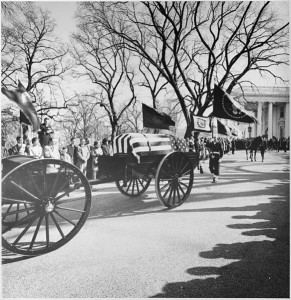 Ed and I went to DC to watch the procession that transferred the President’s body from the White House to the Capitol Building. We had the sense that we were witnessing a tragic piece of history as the riderless horse passed by.
Ed and I went to DC to watch the procession that transferred the President’s body from the White House to the Capitol Building. We had the sense that we were witnessing a tragic piece of history as the riderless horse passed by.
Howard and Sue Rees who worked with Baptist students in the DC area knew we were pretty distraught by the president’s death. They also knew we didn’t own a TV, so they invited us to their home to watch the funeral with their family. Had it been just me, I might have gone downtown in hopes of seeing some of the world leaders who came for the funeral. Some of our friends from Calvary Baptist Church did go to the vicinity of Saint Matthew’s Roman Catholic Church, and saw Charles de Gaulle and Haile Selassie, as well as others who attended the service. We only saw them on TV.
I lost some of my naiveté and some of my optimism when Kennedy was assassinated. Before the assassination, I don’t think I believed things like that still happened—they were part of history but not the present. Would that it were so!

